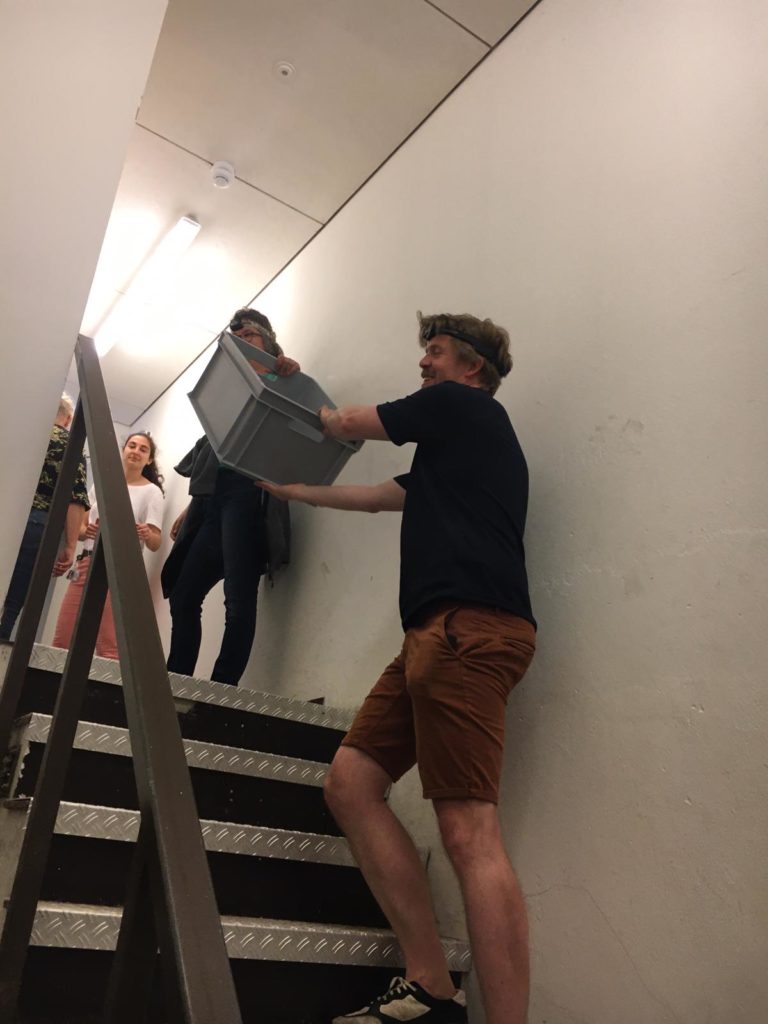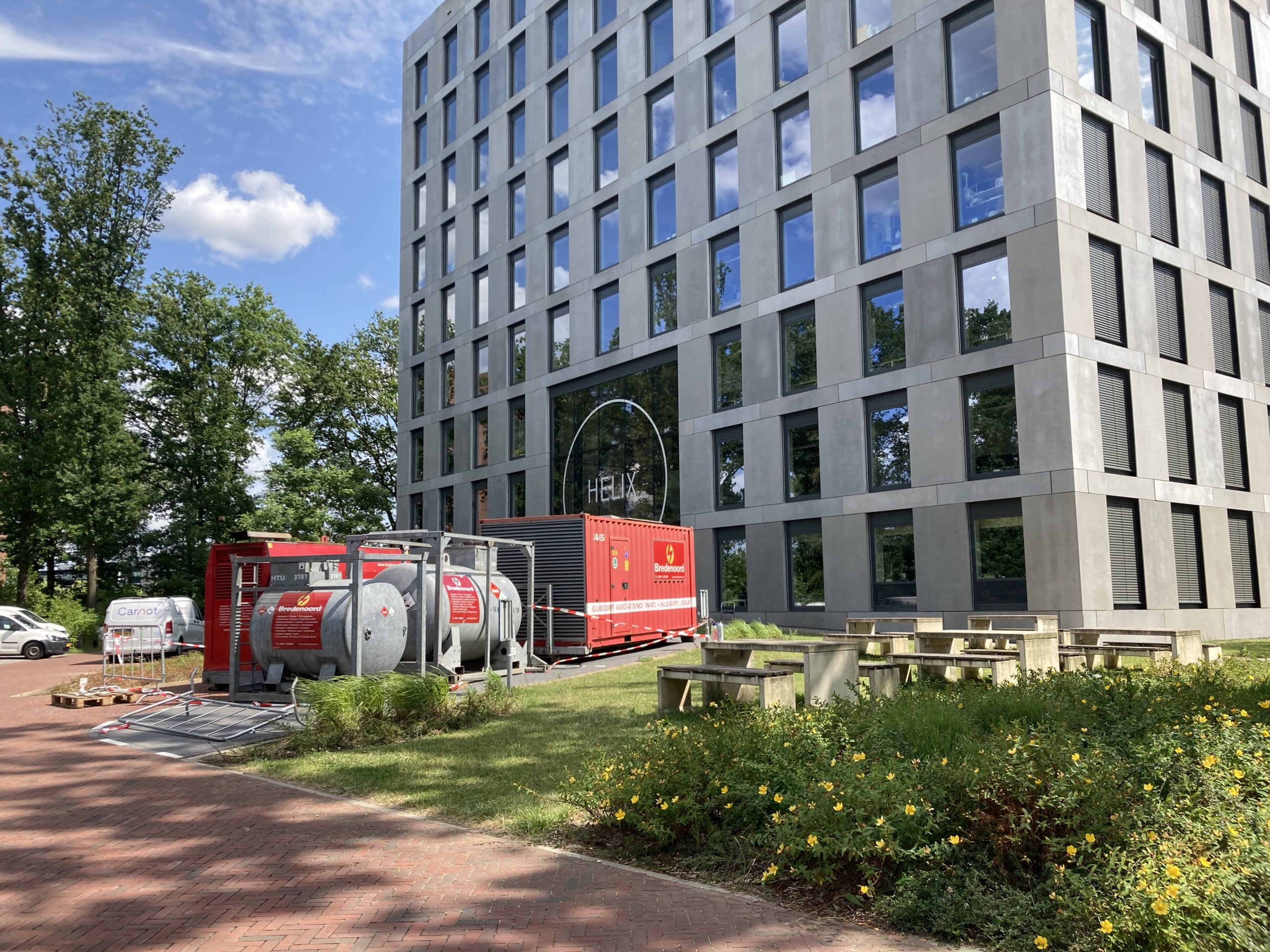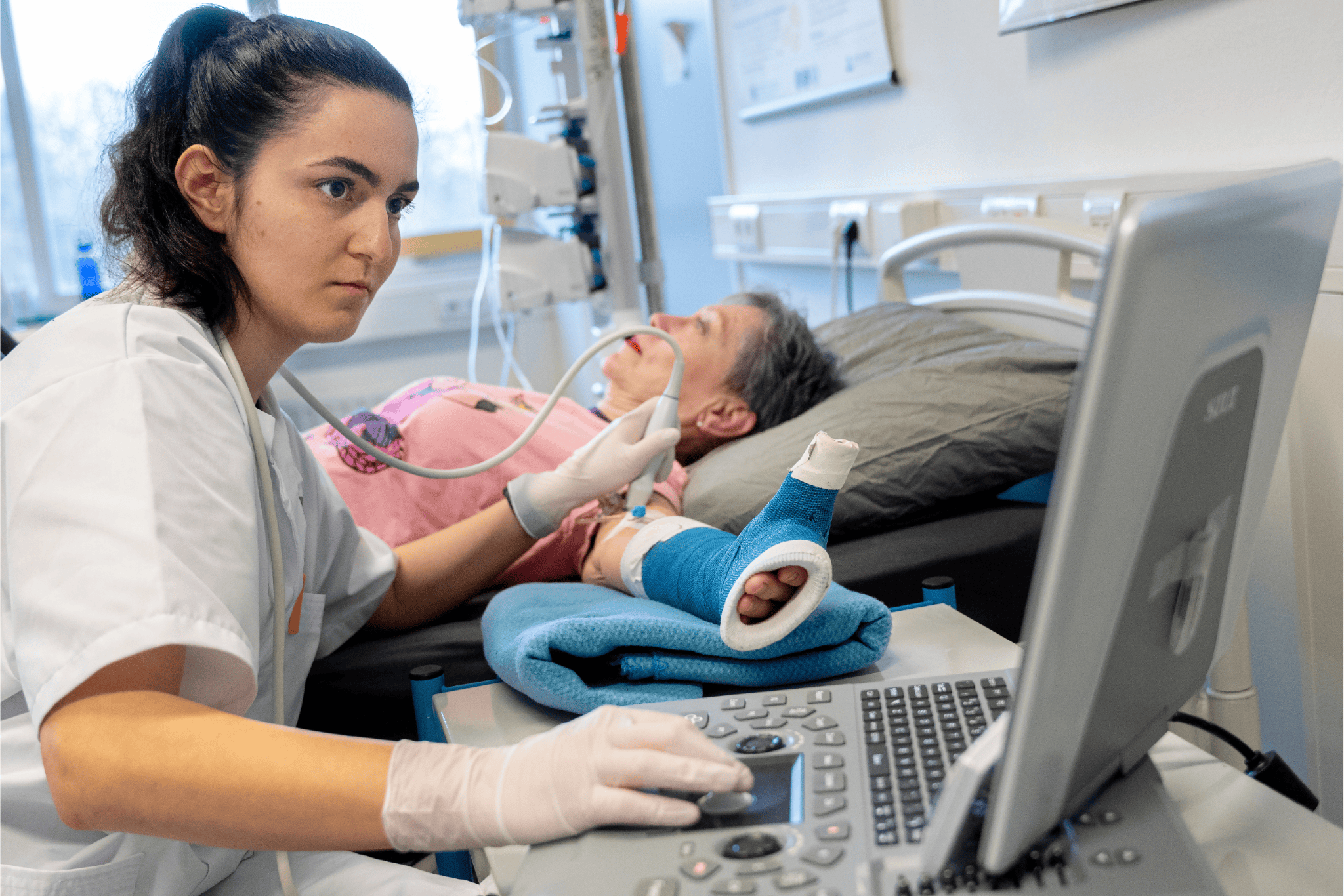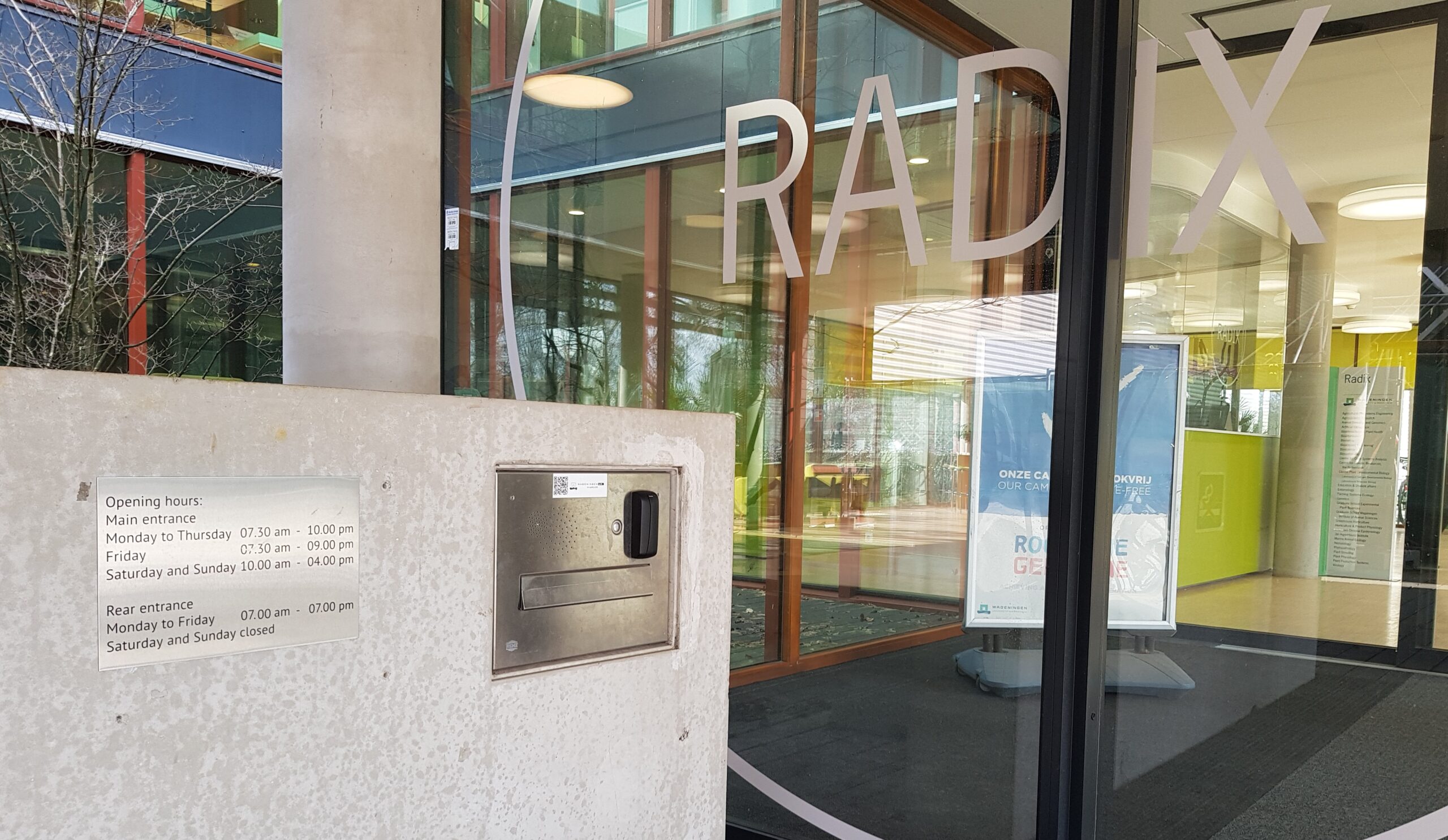A short circuit led to a power cut in Helix last Friday. Urgent action had to be taken to rescue the frozen research material. ‘Staff formed human chains throughout the building in the middle of the night to get the samples to safety as efficiently as possible.’
Much of the material used by the Nutrition Science cluster is kept in the freezer in Helix at a temperature of -80 degrees Celsius. ‘This biobank contains samples collected during numerous long-term scientific studies,’ explains Sander Kersten, head of the Human Nutrition & Health department.
The material is worth tens of millions of euros. ‘One of my colleagues said, “If the contents of the biobank go, you might as well abolish my chair group”. Samples of entire cohorts are stored there. If they were to be lost, the damage would be inconceivable.’

Human chains
‘We called up staff in the weekend,’ explains Kersten. ‘They spent Saturday evening rapidly transferring samples in human chains from the biobank on the first floor of Helix to the freezer container in the car park.’
On Saturday evening, staff brought samples to the freezer container in the car park
After midnight, they were able to get the biobank’s cooling system working on power from the emergency generator. ‘We decided then not to continue moving the samples. So about half are still in the biobank. The other half are in the freezer container. We won’t be disturbing them for the time being because we want to keep the temperature stable in the cooling systems.’
Impact
The damage is huge but it could have been a lot worse, says Kersten. ‘Unfortunately we were not able to rescue everything by a long way, but we did save the biobank, which we’re very relieved about.’
The full impact can only be assessed once Helix opens again properly. Then the biobank samples can be returned to where they belong as well. ‘Fortunately we took great care and used a system when transferring everything on Saturday.’

 Emergency generators
Emergency generators 

